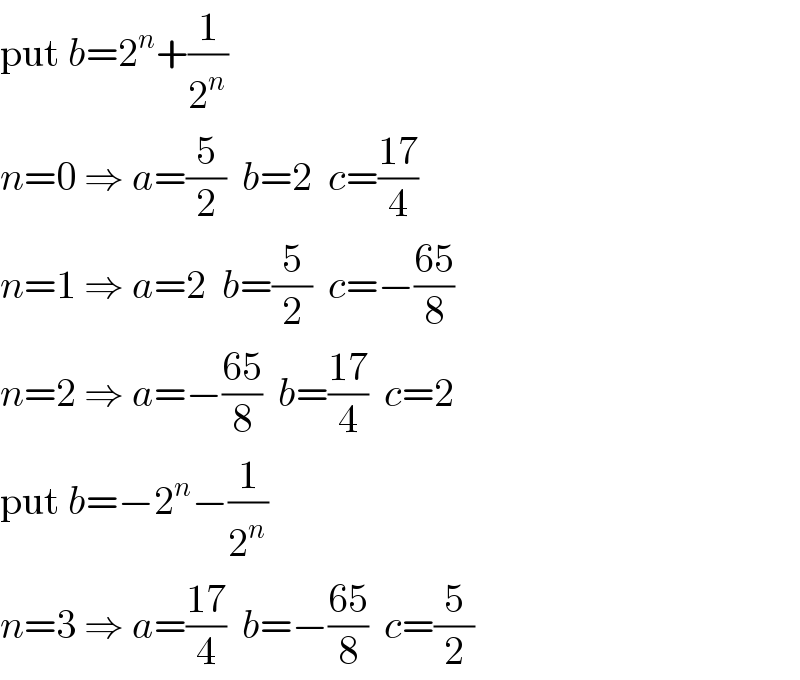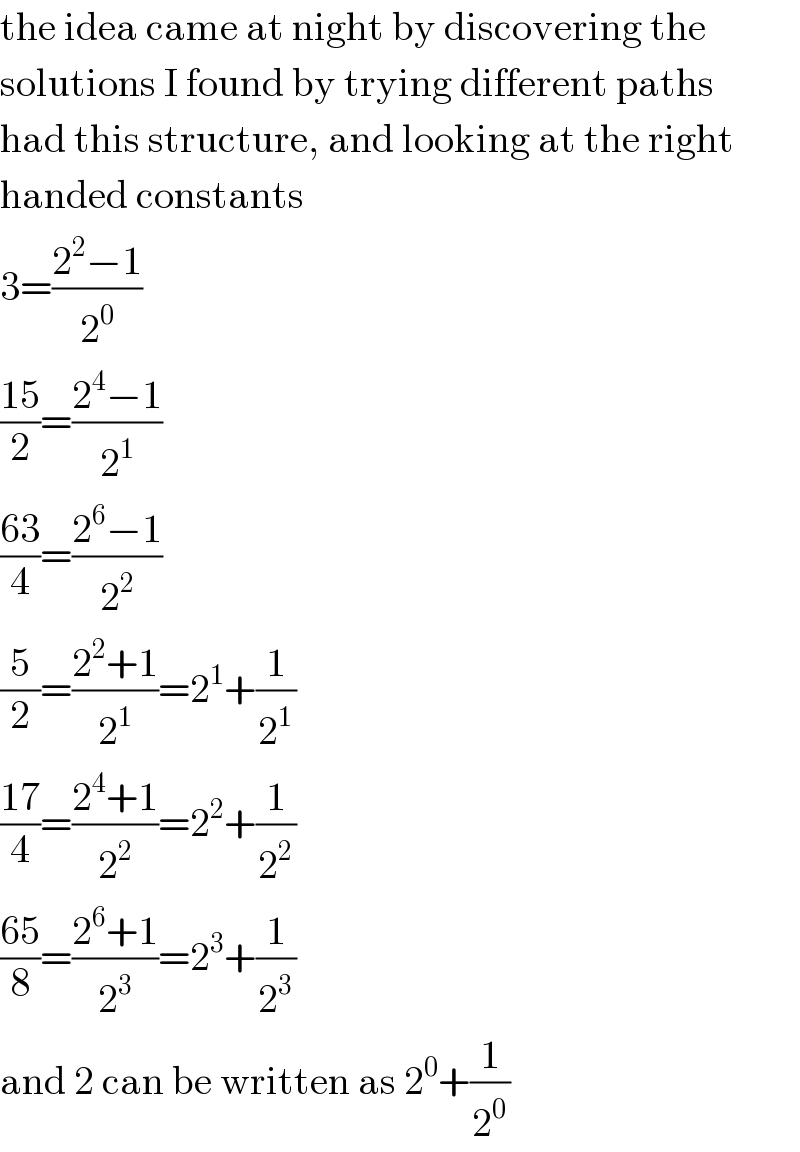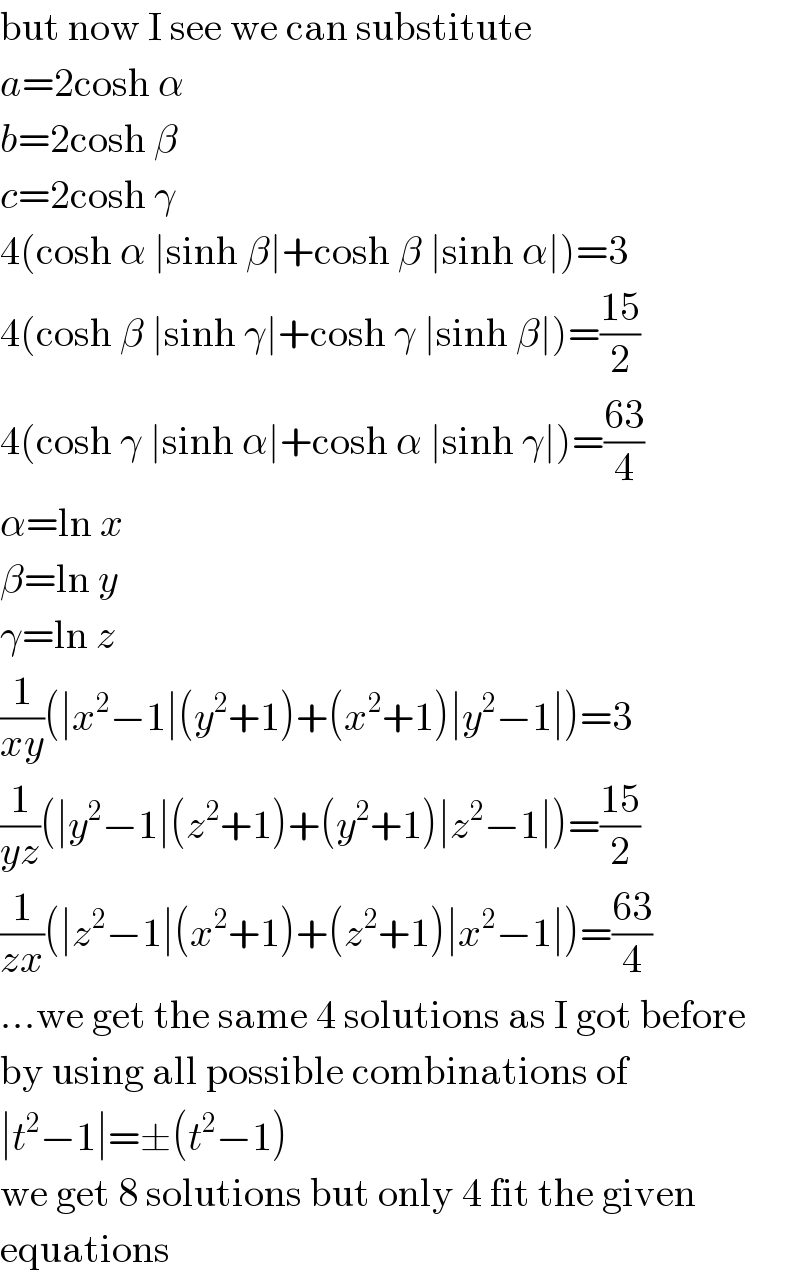
Question and Answers Forum
Question Number 64204 by naka3546 last updated on 15/Jul/19

Commented by naka3546 last updated on 15/Jul/19

Answered by MJS last updated on 16/Jul/19

Commented by ajfour last updated on 16/Jul/19

Commented by MJS last updated on 16/Jul/19

Commented by MJS last updated on 16/Jul/19

Commented by mr W last updated on 16/Jul/19

